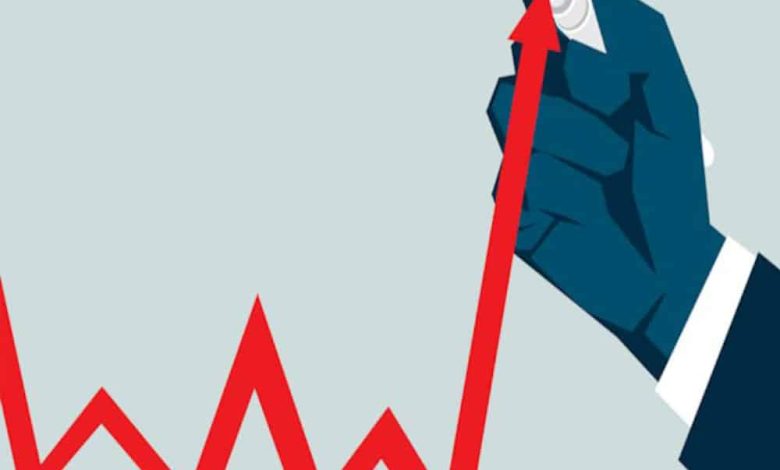Who Will Pay the Ultimate Price for the Ever-rising Prices?

Written by
Aladdin Touran
In recent days, state-run media have acknowledged part of Iran’s economic crises and how regime officials are involved in destroying Iran’s economy by corruption.
On February 4, a heart-wrenching video circulated on Iran’s social media, showing a young mother begging for two eggs to feed her children, promising to pay for them later. More Iranians are pushed into the swamp of poverty and cannot afford a decent living due to the rising costs.
The prices of essential consumer goods are skyrocketing daily. According to Iran’s state media, many food items, such as bread, rice, fish, etc., rose by 142%. Lentils rank first with a 261% increase. Chickpeas with 218% and sodas with 201% rank second and third. Most workers only eat bread and soft drinks for lunch.
“The wholesale price of potatoes is 20,000 to 150,000 rials a kilo, while at fruit shops, it reaches at least 200,000 rials a kilo. This is beyond the purchasing power of many consumers. The price of potato has risen by 106% since last month,” the state-run Mardom Salari daily wrote on February 5.
The paper added that “prices increase with lightning speed, and people only watch them with despair. People dream about eating Red meat and poultry. The price of rice is also increasing, and potato has turned to gold!”
Many food items are imported using the currency at the official exchange rate of 42,000 rials for a dollar. But some of the foodstuffs such as Iranian rice, fish, potato, and lentil are domestic products, so their prices are on the rise.
The fingerprint of the state-affiliated mafia could explain this matter.
“The two variables of currency and shares of countless state-owned companies, along with the element of monopoly, have allowed the authorities in Iran to influence the economy regardless of the fundamental equations of the market. The result is embezzlement, hoarding, and the emergence of a mafia that has seized all areas of the economy,” the state-run Eghtesad-e Pouya daily wrote on February 8.
The so-called state-owned companies, and mafia, refer to the Revolutionary Guards (IRGC) and its front companies.
This paper acknowledges that Iran suffers from a “Mafia Consortium” that “hoards the consumer goods and sells them at any price it wants.”
Corruption eats Iran’s IRGC from within
For long, Tehran’s apologists have tried to imply that sanctions alone have devastated Iran’s economy., in effect covering up the regime’s institutionalized corruption and ineptitude.
“Everyone knows that domestic products, such as meat, poultry, fruit, vegetables, and many other items that fluctuate in price every day, have little to do with sanctions and pressure from this or that foreign government,” Eghtesad-e Pouya wrote.
On January 30, the regime’s supreme leader, Ali Khamenei, acknowledged that “the main cause of these crises are not the sanctions. Wrongheaded decisions and failing to act play an important part in creating these problems.”
Since his selection as the regime’s president by Khamenei in June, Ebrahim Raisi and his government have brazenly claimed that the inflation rate has dropped. Meanwhile, the engineered statistics provided by Iran’s Statistic Center indicate the inflation rate is hovering around 45 percent.
On January 12, Hossain Raghfar, one of the regime’s economists, rejected Raisi’s claims. “Officials have produced false data in the Iranian economy for many years, and this has led to a severe distrust of people in official data and statistics,” adding, “The announcement of a reduction in inflation is not in line with the people’s livelihood.”
In another litany of lies on February 7, Raisi claimed that “corruption and mafia of import should end and be dismantled.” Like his mentor Khamenei, Ebrahim Raisi refused to offer a practical solution to combat corruption, despite being regime number two official. Besides, hoping that Raisi and Khamenei would fight corruption is like hoping an arsonist put out the fire. Khamenei, his powerhouses, IRGC, and officials like Raisi are behind the systematic corruption in Iran. Thus, their efforts to combat corruption amount to nothing more than general suggestions and empty gestures.
Briefly put, Iran is suffering from a crippling economic crisis. Prices are skyrocketing, inflation is rampant, and more people join the rank of unemployed daily. They can hardly make ends meet.
Yet, they are aware what the real cause of the country’s economic crunch: the regime itself. This explains why Iranians from all walks of life hold daily rallies and demonstrations to protest against their abysmal financial predicament, but target the ruling theocracy and its corruption and ineptitude.

